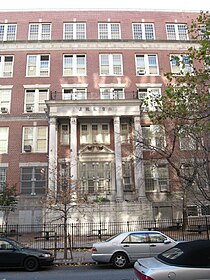
Eldred Gregory Peck was an American actor and one of the most popular film stars from the 1940s to the 1970s. In 1999, the American Film Institute named Peck the 12th-greatest male star of Classic Hollywood Cinema.

Victim is a 1961 British neo-noir suspense film directed by Basil Dearden and starring Dirk Bogarde and Sylvia Syms. It premiered in the UK on 31 August 1961 and in the US the following February. It was the first British film to explicitly name homosexuality and deal with it sympathetically. On its release in the United Kingdom, it proved highly controversial to the British Board of Film Censors, and in the U.S. it was refused a seal of approval from the American Motion Picture Production Code. Despite this the film received acclaim and is now regarded as a British classic, as well as having been credited for liberalising attitudes towards homosexuality in Great Britain.

To Sir, with Love is a 1967 British drama film that deals with social and racial issues in an inner city school. It stars Sidney Poitier and features Christian Roberts, Judy Geeson, Suzy Kendall, Patricia Routledge and singer Lulu making her film debut. James Clavell directed from his own screenplay, which was based on E. R. Braithwaite's 1959 autobiographical novel of the same name.

Accident is a 1967 British drama film directed by Joseph Losey. Written by Harold Pinter, it is an adaptation of the 1965 novel Accident by Nicholas Mosley. It is the third of four Losey–Pinter collaborations; the others being The Servant (1963), Modesty Blaise (1966) and The Go-Between (1971). At the 1967 Cannes Film Festival, Accident won the Grand Prix Spécial du Jury award. It also won the Grand Prix of the Belgian Film Critics Association.

Blackboard Jungle is a 1955 American social drama film about an English teacher in an interracial inner-city school, based on the 1954 novel The Blackboard Jungle by Evan Hunter and adapted for the screen and directed by Richard Brooks. It is remembered for its innovative use of rock and roll in its soundtrack, for casting grown adults as high school teens, and for the unique breakout role of a black cast member, film icon Sidney Poitier, as a rebellious yet musically talented student.

Thoroughly Modern Millie is a 1967 American musical-romantic comedy film directed by George Roy Hill and starring Julie Andrews. The screenplay, by Richard Morris based on the 1956 British musical Chrysanthemum, follows a naïve young woman who finds herself in a series of madcap adventures when she sets her sights on marrying her wealthy boss. The film also stars Mary Tyler Moore, James Fox, John Gavin, Carol Channing, and Beatrice Lillie.

Sandra Dale Dennis was an American actress. She made her film debut in the drama Splendor in the Grass (1961). For her performance in the comedy-drama film Who's Afraid of Virginia Woolf? (1966), she received the Academy Award for Best Supporting Actress.

Up the Down Staircase is a novel written by Bel Kaufman, published in 1964, which spent 64 weeks on The New York Times Best Seller list. In 1967 it was released as a film starring Sandy Dennis, Patrick Bedford, Ruth White, Jean Stapleton and Eileen Heckart.
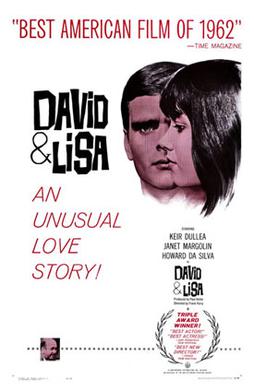
David and Lisa is a 1962 American drama film directed by Frank Perry. It is based on the second story in the two-in-one novellas Jordi/Lisa and David by Theodore Isaac Rubin; the screenplay, written by Frank Perry's wife Eleanor Perry, tells the story of a bright young man suffering from a mental illness which, among other symptoms, has instilled in him a fear of being touched. This lands him in a residential treatment center, where he meets Lisa, a similarly ill young woman who displays a split personality.

Francis Bosley Crowther Jr. was an American journalist, writer, and film critic for The New York Times for 27 years. His work helped shape the careers of many actors, directors and screenwriters, though his reviews were sometimes regarded as unnecessarily harsh. Crowther was an advocate of foreign-language films in the 1950s and 1960s, particularly those of Roberto Rossellini, Vittorio De Sica, Ingmar Bergman, and Federico Fellini.

Bend of the River is a 1952 American Western film directed by Anthony Mann and starring James Stewart, Arthur Kennedy, Julie Adams, and Rock Hudson. Based on the 1950 novel Bend of the Snake by Bill Gulick, the film is about a tough cowboy who risks his life to deliver confiscated supplies to homesteaders after gold is discovered in the region. Bend of the River was filmed on location in Sandy River, Mount Hood, the Columbia River and Timberline, Oregon. This is the second Western film collaboration between Anthony Mann and James Stewart.

Scandal Sheet is a 1952 American film noir directed by Phil Karlson. The film is based on the novel The Dark Page by Samuel Fuller, who himself was a newspaper reporter before his career in film. The drama features Broderick Crawford, Donna Reed and John Derek.

Barefoot in the Park is a 1967 American romantic comedy film directed by Gene Saks from a screenplay by Neil Simon, adapted from his 1963 play of the same name, starring Robert Redford and Jane Fonda as a young newlywed couple. Paul, a conservative lawyer, marries the vivacious Corie, but their highly passionate relationship descends into comical discord in a five-flight New York City walk-up apartment. The supporting cast features Charles Boyer, Mildred Natwick, Herbert Edelman, and Mabel Albertson.
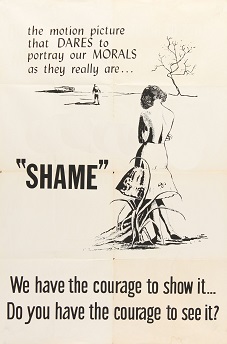
The Intruder, also known as I Hate Your Guts, Shame and The Stranger, is a 1962 American drama film directed and co-produced by Roger Corman and starring William Shatner. The story, adapted by Charles Beaumont from his own 1959 novel of the same name, depicts the machinations of a racist named Adam Cramer, who arrives in the fictitious small Southern town of Caxton in order to incite white townspeople to racial violence against black townspeople and court-ordered school integration.
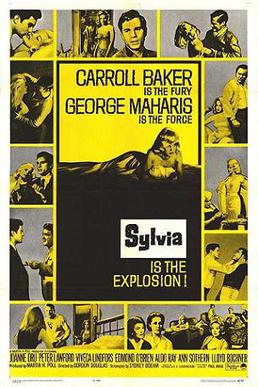
Sylvia is a 1965 American drama film directed by Gordon Douglas, written by Sydney Boehm, and starring George Maharis, Carroll Baker, and Peter Lawford. The film is based on the novel of the same name by E. V. Cunningham in 1960.
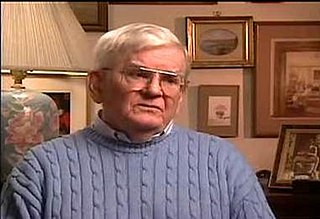
Tad Mosel was an American playwright and one of the leading dramatists of hour-long teleplay genre for live television during the 1950s. He received the 1961 Pulitzer Prize for Drama for his play All the Way Home.

Divorce American Style is a 1967 American film, directed by Bud Yorkin and starring Dick Van Dyke, Debbie Reynolds, Jason Robards, Jean Simmons, and Van Johnson. Norman Lear produced the comedy satire and wrote the script, based on a story by Robert Kaufman. It focuses on a married couple who opt for divorce when counseling fails to help them resolve their various problems, and the problems presented to divorced people by alimony. The title is an homage to Divorce Italian Style (1961).

Aerial Gunner is a 1943 American black-and-white World War II propaganda film produced by William C. Thomas and William H. Pine, who also directed. The film stars Chester Morris, Richard Arlen, and Jimmy Lydon. This was the first feature film directed by Pine, who produced other films through his company, Pine-Thomas Productions. Aerial Gunner was distributed by Paramount Pictures.

Ulysses is a 1967 drama film based on James Joyce's 1922 novel Ulysses. It concerns the meeting of two Irishmen, Leopold Bloom and Stephen Dedalus, in 1904 Dublin.

